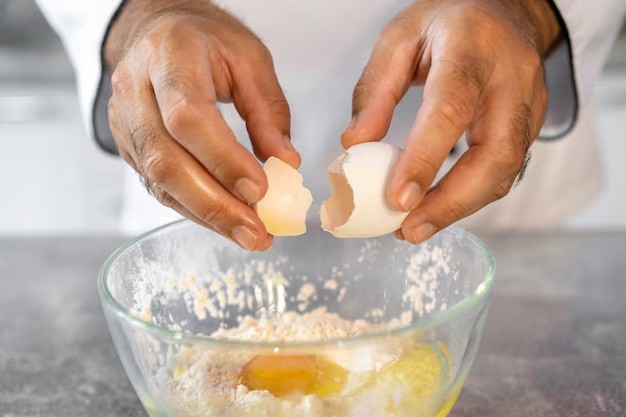Should You Leave Butter Out of the Fridge? Everything You Need to Know
Butter—a staple in many homes, adding richness and flavor to both sweet and savory dishes. Whether you're spreading it on toast, melting it over vegetables, or incorporating it into a decadent cake, butter has an undeniable presence in the kitchen. But how should you store it? Is it safe to leave butter out of the refrigerator, or does it belong on the chillier shelf? Let’s dive into this topic and uncover the buttery truth.
🧈 What Happens When Butter Is Left Out?
Butter is a type of dairy product made by churning cream until the fat separates from the buttermilk. While keeping butter refrigerated is common practice, many wonder about the implications of leaving it out at room temperature.
The Science Behind Butter
Butter primarily consists of milk fat, water, and milk solids. This composition influences its behavior when exposed to different environments. Here’s a closer look at what occurs when butter sits on your countertop:
- Texture Change: Butter softens as it warms up, becoming smooth and spreadable. This is why room temperature butter is preferred for spreading on toast.
- Fat Oxidation: Butter left exposed can undergo oxidation, leading to off-flavors. However, when stored properly in a butter dish or covered container, exposure is minimized.
- Potential Bacterial Growth: Butter contains minimal moisture and acids, creating a less favorable environment for bacteria compared to other dairy products.
Room Temperature Butter: Is It Safe?
From a safety perspective, butter is relatively stable due to its low water content. Here are a few key points to consider:
- Salted vs. Unsalted: Salted butter is more resistant to spoilage due to salt’s preservative qualities. Unsalted butter is more perishable.
- Duration on Countertop: Many find it safe to leave butter out for 1-2 days in moderate climates. However, this can vary based on the room's temperature and humidity.
🌡️ How Long Can You Leave Butter Out?
Determining the exact duration butter can be left out safely involves several factors:
Factors Affecting Butter’s Shelf Life
- Room Temperature: Butter kept at cooler room temperatures (around 70°F or lower) will last longer than butter exposed to higher temperatures.
- Container or Cover: A butter dish with a lid or an airtight container can protect butter from exposure to air and contaminants.
- Type of Butter: Salted butter tends to last longer due to the salt acting as a preservative.
Practical Storage Tips
For those who want the convenience of room temperature butter without compromising safety, consider these practices:
- Use Smaller Portions: Leave out only a portion of butter that you plan to use within a couple of days.
- Butter Bells: These specially designed dishes can keep butter fresh longer by creating an airtight seal.
🧑🍳 Culinary Considerations: Why Leave Butter Out?
Aside from safety and spoilage concerns, there are compelling culinary reasons for opting to keep butter at room temperature.
Baking Benefits
Room temperature butter is crucial for many baking recipes, ensuring proper creaming with sugar and achieving desired textures in baked goods.
Easy Spreading
Soft butter is easier to spread, preventing tearing of bread and making for a more enjoyable dining experience.
🌿 Related Subtopics: Exploring Alternatives
When discussing butter storage, it’s also valuable to look at alternatives that can be used similarly in the kitchen.
Margarine
Margarine is a plant-based alternative that remains stable at room temperature longer than butter because it doesn’t spoil as quickly due to its refined composition.
Ghee
Ghee, a form of clarified butter predominantly used in South Asian cuisine, has a longer shelf life and can be safely kept out, as the milk solids are removed during processing.
📋 Key Takeaways: Butter Storage Guidelines
Here's a quick overview to help you manage butter safely and efficiently in your kitchen:
- 🧂 Salted butter is more resistant to spoilage than unsalted butter.
- 🌡️ Store butter in a cool place, ideally keeping the room temperature below 70°F.
- 🍽️ Use a butter dish with a lid to protect butter from air and other contaminants.
- 💡 Consider alternative options like ghee or margarine if you prefer longer shelf life and less refrigeration.
🥳 A Meaningful Insight
Ultimately, whether you decide to refrigerate or leave butter out depends on your culinary needs and the climate of your kitchen. Understanding the properties of butter and its potential for spoilage helps you make informed decisions. Choosing the right storage method ensures you enjoy the perfectly spreadable, delicious flavor of butter whenever you need it.
In navigating the rich buttery landscape, safety and convenience go hand in hand. By adopting practical storage tips, you can savor the buttery goodness without fuss or worry. Whether it’s a crisp piece of toast or a flaky pastry requiring room temperature butter, knowing how to store it right makes all the difference.

